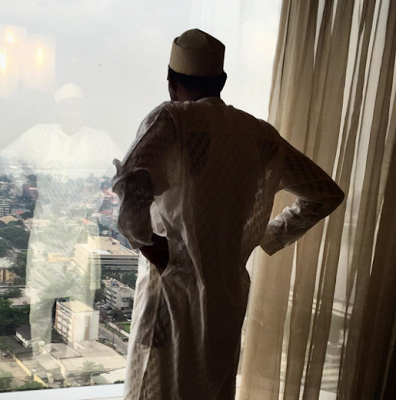L
LequteMan
Guest

One time military head of state, Muhammadu Buhari, was sworn in as President of the Democratic Republic of Nigeria on the 29th of May 2015, after a historic win at the polls.
Buhari contested under the All Progressive Congress, APC, and defeated incumbent President, Goodluck Jonathan, by about 2.5 million votes.
His victory was greeted with joy in major parts of the nation as PDP had been in power for the past 16 years, and Nigerians, many Nigerians wanted CHANGE.
It has been over a year since Buhari has become president and today, the ubiquitous love he earlier enjoyed has waned considerably. Generally, the belief is that things have gone from bad to worse.
Many Nigerians are fed up with his tenure and here are several reasons why:
One-sided anticorruption war
President Muhammadu Buhari during his campaign promised to stamp out corruption in Nigeria. True to his word, the EFCC became quite active after he became President. The agency, under a new leadership has invited/ arrested several top government officials for questioning. EFCC operatives have also invaded homes of several prominent Nigerians with questionable riches in a bid to arrest them.
However, a large percentage of those arrested are members of the opposition party, PDP. Several APC bigwigs, like Babatunde Fashola and Rotimi Amaechi, who have had several corruption petitions against them weren’t probed. Instead, Buhari made them ministers.
Lopsided Political Appointments
Apparently, the era of nepotism isn’t over. The easiest way to snatch a position in government is to be related to Buhari or one of his relatives, it seems. Buhari doesn’t seem to consider federal character in his appointments as most of them are seen to tilt towards the north. All of Nigeria’s security agency heads are from the same part of the country and the southern part is complaining bitterly about this.
Increased Inflation Rate
Nigeria’s inflation rate has been rising steadily since Buhari became president. This means food prices, and the price of other goods are on the rise. This doesn’t bode well for the average Nigerian as most of them are low or middle income earners. To make matters worse, the increased food costs didn’t usher in an increase in income as well.
Several businesses have closed down and most governors have been unable to pay the salaries of their workers.
Depreciation of the naira
“I’ll Make One Dollar Equal to One Naira!”
This was Buhari’s proclamation during his campaign days in 2015. One would think policies to stimulate this would be put in place after he gains power. Sadly, the opposite has been the case. The naira has lost twice its value since Buhari became president. It currently exchanges at about N390 per dollar. Before Buhari became president, it was around N165 per dollar.
The government keeps battling to save the currency but the naira keeps falling, hitting record lows in the process.
Economic Recession
Recently, Nigeria lost its position as the largest economy in Africa to South Africa. This is because it has been shrinking the past few quarters. As a result Nigeria’s economy has entered recession. This fact alone has made several Nigerians lose respect for the promising government of Buhari.
Lack of decisive decision to end herdsmen attacks
Farmers clash with herdsmen, mostly Fulanis, isn’t a new thing. However the rate at which herdsmen attack farmers, citizens and communities have been alarming since Buhari came into power.
Although Buhari has spoken out to condemn the attacks purportedly perpetrated by his kinsmen, little is being done to prevent further attacks or curb the menace.
General economic hardship
Nigerians are groaning. Things are getting worse. The crash in crude oil prices coupled with the incessant attack on oil installations has dealt a deadly blow on Nigerians revenue generation. Although government is trying to raise funds through tax, the country is broke. This has filtered to every sector of the country and is felt by every Nigerian in one way or the other.

